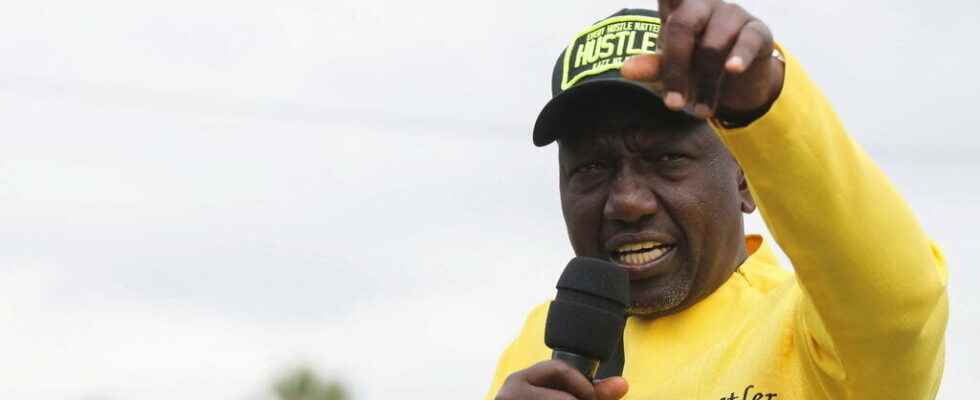This weekend, William Ruto was in a political rally in central Kenya and his competitor Raila Odinga in the west. On the first official day of the campaign, the election is already well represented in the streets of Nairobi with giant billboards in the colors of the main parties.
With our correspondent in Nairobi, Albane Thirouard
The political campaign is officially launched in Kenya on May 29, while, according to the calendar, the electoral commission has until June 6 to validate the candidacies of the contenders for the August 9 election. The two main candidates, William Ruto and Raila Odinga, have already held political rallies in recent months, but Kenyans expect the political campaign to gain new momentum. Helicopter flights, distribution of money or party-themed goodies. They are used to the spectacle of the biggest contenders.
And on the first official day of the campaign, the election is already well represented in the streets of Nairobi with giant billboards in the colors of the parties of William Ruto and Raila Odinga. Suitors with little budget are less visible. Because, in these elections, money plays an important role.
From his carpentry workshop, Samson Omondi proudly shows the work blues received from a candidate. “ Sometimes they also give us 8, 4 or even 2 euros. The coronavirus has affected us a lot, people have no money. So if a candidate comes to talk to us without giving us anything, we’re not going to vote for him. »
What leave Dennis Odhiambo indifferent. At 25, he does not intend to vote. ” It’s always the same thing, he said. They are campaigning, they tell us “I am going to create 15 million jobs”, but on the ground there is nothing. These are false promises. »
The fear of violence
Nevertheless, like many residents, he hopes to see a peaceful vote. ” People take the ballot personally. I will favor someone of my ethnicity, rather than their ideology. And if we hear the campaign speeches, the politicians encourage this thought by saying “the others are not well, it’s our turn to eat”. »
The rise in hate speech on social networks worries civil society. Mulle Musau is the national coordinator of Elog, a citizens’ election observation group. He fears that the campaign, if not well supervised, will lead to acts of violence. ” We do not expect to see them across the whole country but concentrated in the usual hot spots, such as the Lake Victoria region, the Rift Valley, Nairobi or Mombasa. There has been an increase in the use of social networks and especially in hate speech and fake news. Then, we are preparing to see more and more electoral fraud, and mainly vote buying. »
These bribes are precisely what Matchel Nyagaya deplores. This law student would like to see a more egalitarian campaign. ” Money controls everything in the electoral process. The language between politicians and citizens boils down to which candidate will give them more money in exchange for their vote. And if you look at the advertisements on television, it’s a presidential election with two candidates, the two in the lead are well financed, have already been in government. While independent candidates cannot afford advertisements to promote their ideas “, he regrets.
Some are also worried about seeing recurrent post-election conflicts in Kenya.
